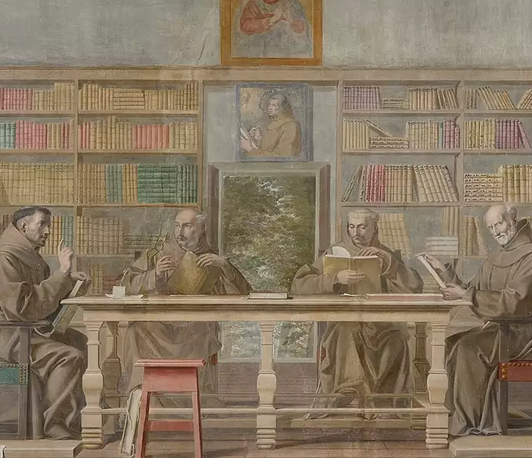Missionary Canon Law: The Propaganda Fide Congregation and the Challenge of Daily Life Moral Cases in China, 18th-20th centuries
Lecture Series 'Rites Controversy'
- Datum: 27.09.2023
- Uhrzeit: 13:30 - 15:30
- Vortragende(r): Eugenio Menegon (Boston University)
- Ort: Online
- Gastgeber: Fupeng Li, Benedetta Albani, Manuela Bragagnolo
- Kontakt: roeseler@lhlt.mpg.de

Bodies of law are based on general legal principles as well as on actual cases in daily life. Traditionally, scholars saw church canon law as a human expression of divine law, chiefly organized around theological and moral principles. More recently, however, new historiography has shifted our attention to the contribution in canonistic codification from casuistic judgments over social-moral conflicts, reported to the central church by the local clergy, state authorities, and the faithful.
Religious encounters in early modern and modern times produced a plethora of detailed reports on “moral cases” (dubia) from the new missionary fields outside Catholic Europe, requiring the central authorities in Rome to issue specific decisions, and then to enshrine such decisions in broader canon law. Building upon the recent historiographical focus on peripheral influence over the center and the importance of dubia from the missions, this presentation will discuss the specific “Chinese” contribution to Catholic “missionary canon law,” and offer a preliminary introduction to some sources for its study.
Eugenio Menegon is Professor of History at Boston University and the Director of the Boston University Center for the Study of Asia. He has published extensively on the history of Chinese-Western relations, and is the author of two books, Un solo Cielo. Giulio Aleni S.J., 1582-1649. Geografia, arte, scienza, religione dall’Europa alla Cina, (One Heaven. Giulio Aleni S.J. (1582-1649). Geography, art, science, religion from Europe to China, Brescia, Grafo Edizioni, 1994); and Ancestors, Virgins, and Friars: Christianity as a Local Religion in Late Imperial China (Harvard Asia Center Publication Programs and Harvard University Press, 2009), recipient of the 2011 Joseph Levenson Book Prize in Chinese Studies. His current book project is an examination of the daily life and political networking of European residents at the Qing court in Beijing during the 17th–18th centuries.
This lecture is part of the lecture series Rites Controversy: An Entangled History of Normativity Between the East and the West, co-hosted by two Max Planck Partner Groups (Beijing, Trento) and their home department Historical Regimes of Normativity at MPI.
The session is held in English and takes place online. Participants may contact Sandra Michelle Röseler (roeseler@lhlt.mpg.de) for meeting link.